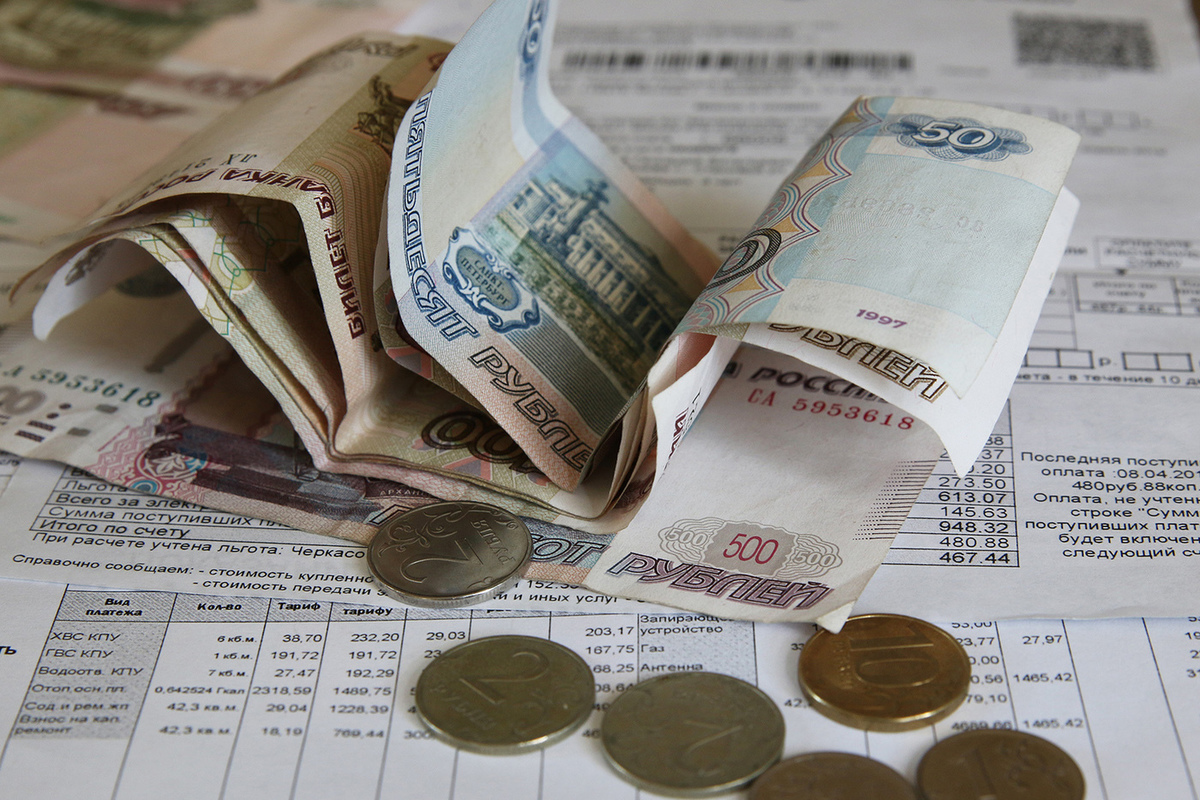Russians owe almost 900 billion for housing and communal services
[ad_1]

The communal sphere continues to live its secret life
Rosstat shared the news as old as the world: the debts of Russians for utilities are growing at an accelerated pace. According to the results of the first quarter of this year, the indicator amounted to almost 900 billion rubles, having increased by 72 billion over the year (in 2022 – by 56 billion). The reason, at first glance, is simple to the point of banality: payments swell from all sorts of “innovative” services that drive up tariffs, and on the other hand, lack of money puts pressure on people. In reality, the picture is much more ambiguous and multicomponent.
In general, the housing and communal services sector is characterized by one reinforced concrete pattern: no matter what happens in this wonderful economy, the effect is invariably not in favor of the population. Both mentally and, moreover, financially, it is very difficult to adapt to the legal obligation to pay for innovations put on the conveyor (such as “smart” meters), for all these pigs in a poke, for services that are becoming more expensive for unknown reasons.
Recently, the Federal Antimonopoly Service announced the indexation of gas tariffs for all consumers by 8% from July 2024 and by the same amount from July 2025. The total payment of citizens for housing and communal services on average in the country will grow by 6.3% and 5.3%, respectively, according to the forecast of the Ministry of Economic Development.
As for non-payers, they, of course, are different. Far from always, debts are due to a lack of money, the plight of households. A considerable part of the debtors, whose lists (sometimes with completely insane numbers opposite the names and numbers of apartments) we see on the doors of the entrances, are those who refuse to pay on principle.
Demonstrating a kind of form of struggle against extortion and injustice. The case is severe, from the category of psychology. For non-payment of utility bills, the law provides for the deprivation of an apartment, but in practice such a measure is difficult to implement, especially if this is the only housing of the defaulter. In practice, for the court to make such a decision, the debt must be comparable to the cost of the apartment.
But the vast majority of debtors do not pay, because there is nothing. Yes, our payment discipline in the housing and communal services sector is the highest of all sectors: until recently it reached 95% across the country. Fearing to be without electricity, gas, water, or even a roof over their heads, the majority prefer to eat less and worse, save on medicines and clothing, but just not to come into conflict with the authorities.
At the same time, the residents have no idea how economically justified all these figures in the receipts are and why they change from month to month only in one direction – an increase. You can suspect a trick, but there is absolutely nowhere to complain: the activities of management companies (MC) and resource supply organizations (RSO), although permitted by the state, are not controlled by them in any way. Accordingly, it is easier to spit and pay. And alas, now there are more and more of those who are already physically unable to digest all this tariff-normative lawlessness: you have to survive, feed yourself and your children.
What are the contributions for major repairs worth alone, which have grown by 30-50% in most Russian regions over the year. At the same time, there is no connection between, on the one hand, the volume and final quality of work, and, on the other hand, the rates. According to Konstantin Krokhin, chairman of the Housing Union, a member of the housing and communal services committee of the Chamber of Commerce and Industry of the Russian Federation, the state, represented by regional authorities, has actually given the go-ahead to ensure that the financial burden in the housing sector falls entirely on the shoulders of citizens. Overhaul is carried out by local operators, who do not have enough funds to fulfill the tasks set by the federal center. Giving their almost last money to public utilities with their growing appetites, people do not see any positive changes: the quality of services is invariably low, while there is no way to influence either the timing or the scope of work – installation and contracting.
Well, this systemic monopoly, which has become the default norm, is really out of control. There is no question of any market mechanisms here; rather, the situation resembles an element of the Soviet planned economy and social policy. From year to year, homeowners have less and less rights, but payment obligations (against the background of the general opacity of the industry) – more and more. It is clear that any company seeks to reduce costs and increase profits. But unfortunately for the population, it is in the housing and communal services sector that this circumstance has acquired the most unfavorable, irresistible, sinister forms.
[ad_2]
Source link






